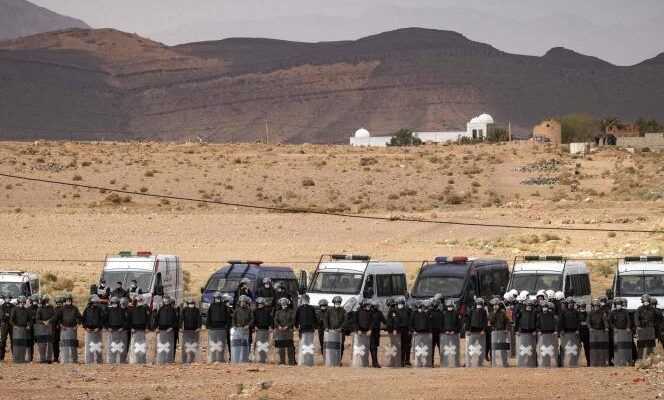Editorial of the “World”. It’s a rise in fever in an area that didn’t need it. The breakdown of diplomatic relations between two neighboring countries is never good news; it is even less so when it comes to the Maghreb and, in this case, to Algeria and Morocco. Announced on August 24 by Algiers, this measure is not only the result of the accumulation of disputes between the two countries. The impact of this rivalry is also an additional source of concern for instability in the Sahel.
The acrimony between Algiers and Rabat around the question of Western Sahara is old – it dates back to the 1970s. The land borders between the two countries have been closed since 1994, by decision of the Algerian authorities, and trade between the two countries reduced to minimum. The Algerian-Moroccan crisis has acquired a new dimension since the announcement, on December 10, 2020 by President Donald Trump, then at the end of his mandate and already defeated in the presidential election, of the recognition by Washington of Moroccan sovereignty over the Western Sahara, in exchange for the normalization of Morocco’s relations with Israel. The “Trump deal” – which his successor, Joe Biden, has not questioned at this stage – gave wings to Moroccan diplomacy, which has since been much more offensive.
The migratory weapon
Rabat thus felt strong enough to open two diplomatic crises this year with European states, Spain and Germany. In May, under the watchful eye of the Moroccan police, some 8,000 young Moroccans managed to cross the gates of the Spanish enclave of Ceuta to enter it illegally. Madrid denounced the deliberate use of the migratory weapon by Morocco in retaliation for the Spanish decision to welcome, for hospital treatment, Brahim Ghali, the secretary general of the Polisario Front, the Saharawi independence movement.
Earlier, Morocco suspended bilateral cooperation with Germany and recalled its ambassador to Berlin after accusing the German government “Hostile acts”. Rabat is particularly angry with Berlin for distancing itself from the “Trump deal” and for calling for an emergency meeting of the UN Security Council on Western Sahara, territory “Occupied by Morocco”. Germany had only called for respect for international law, by virtue of the resolution on the holding of a self-determination referendum that Morocco never wanted to organize.
The Ceuta crisis has seriously damaged the image of the Shereefian kingdom with European governments. The international media’s revelations in July of Morocco’s use of Pegasus spyware, provided by the Israeli company NSO, did not help. The Pegasus affair also contributed to the deterioration of relations with Algeria, where 6,000 telephone numbers, including those of senior military officials, were reportedly targeted.
For its part, the Algerian regime no doubt hopes, by appealing to the nationalist spirit, to divert the attention of the population from its internal difficulties. But this new Algerian-Moroccan stiffening, in the wake of the disturbances in the diplomacy of the Trump era, is also likely to weaken the cohesion of the international effort, under the leadership of Paris, on the Sahel. In such a volatile context, at a time when the situation is tightening in Tunisia, the consequences are potentially negative for the whole region.
